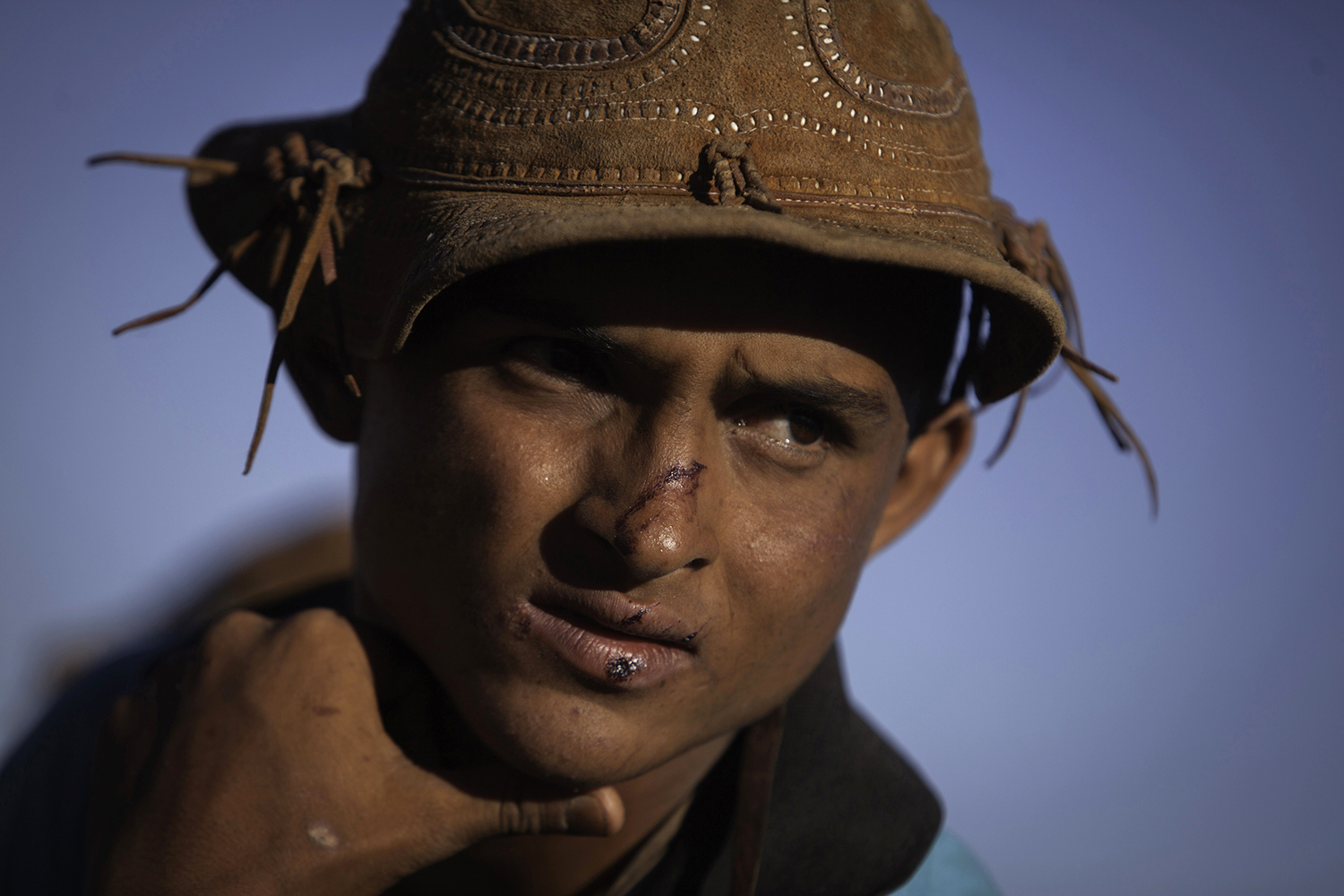Pernambuco’s unique Carnival in maracatu’s cradle

This city in northern Brazil is considered the cradle of the maracatu, a frenetic, rhythmic dance of African origin that infuses its unique Carnival celebration with its spirit.
During Carnival, all of Nazare de la Mata mobilizes in maracatu groups, often dressing up in colorful costumes and large headdresses. A main character is "Caboclo de Lanca," a lance-bearer wearing a huge, embroidered cape.
The Afro-indigenous tradition dates back centuries and arose from the mixing of the faiths of slaves brought to work on the local sugar plantations with local indigenous customs. It is one of the oldest traditions in northeastern Pernambuco state, which is suffering through a Zika outbreak.
The city's more than 20 maracatu groups spend all year preparing for the festivities. Participants go from house to house asking for food and drink, a tradition that began long ago with people traveling between the region's sugar plantations.
On Monday, the maracatu dancers gathered in Nazare de la Mata's main plaza, converging from across the city and surrounding rural areas.
"We need to be prepared for these days of presentation and partying in the carnival," said Jose Esteves, 63, a veteran lance-bearer.
Before dancing he says a prayer to the figure of "Padre Cicero," a figure venerated here as a saint but not recognized as one by the Roman Catholic Church.
"The maracatu is a very serious thing, it forms a part of our lives," he said.
See these photos on APImages.com
Text from the AP news story, AP PHOTOS: Pernambuco's unique carnival in maracatu's cradle.
Follow AP photographers on Twitter
Spotlight is the blog of AP Images, the world’s largest collection of historical and contemporary photos.
Written content on this site is not created by the editorial department of AP, unless otherwise noted.























